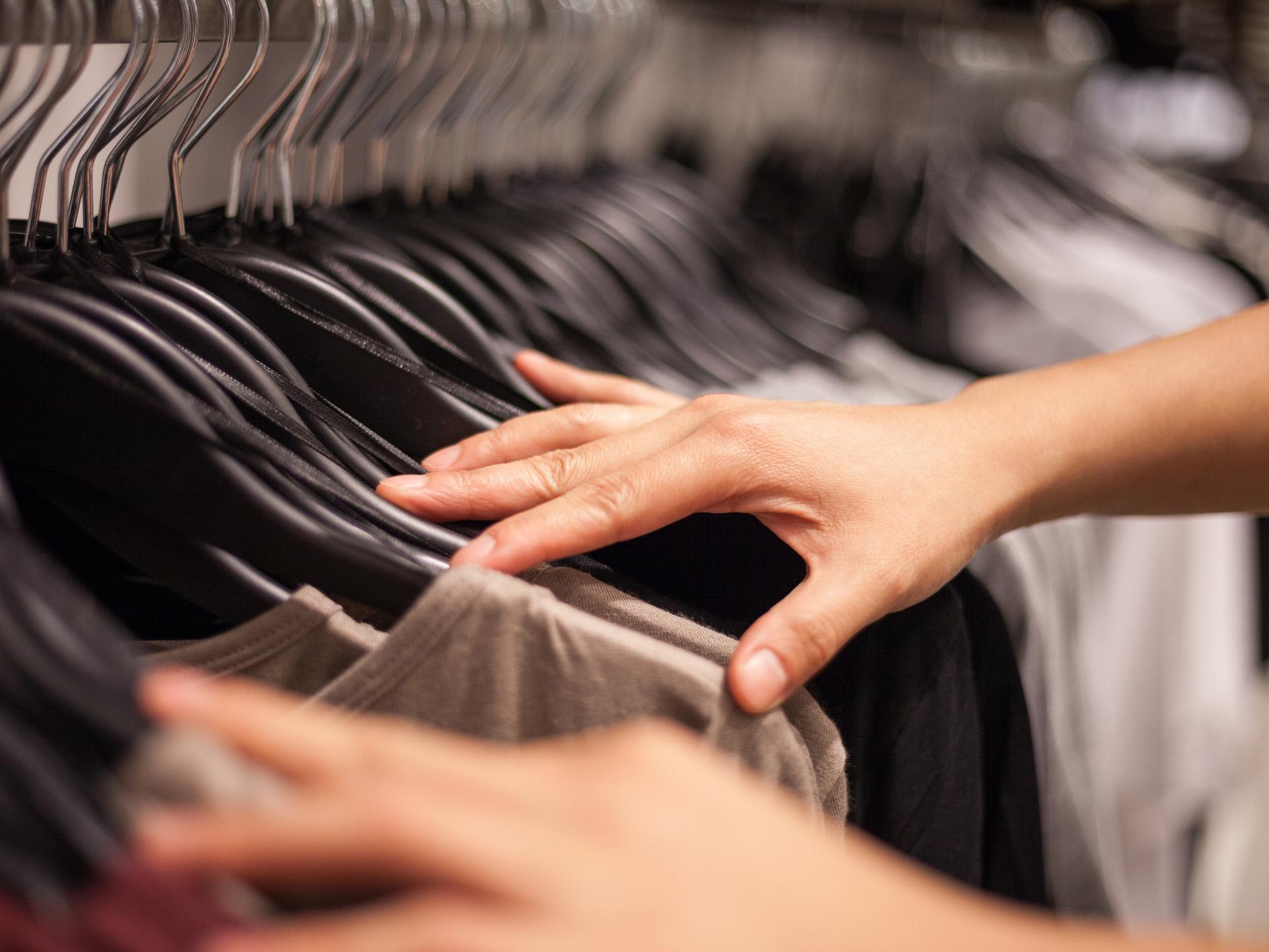Major fashion outlets failing to reduce environmental and social impact, MPs say
Environmental Audit Committee investigation into 'fast fashion' industry follows concerns it encourages overconsumption and generates excessive waste

Your support helps us to tell the story
From reproductive rights to climate change to Big Tech, The Independent is on the ground when the story is developing. Whether it's investigating the financials of Elon Musk's pro-Trump PAC or producing our latest documentary, 'The A Word', which shines a light on the American women fighting for reproductive rights, we know how important it is to parse out the facts from the messaging.
At such a critical moment in US history, we need reporters on the ground. Your donation allows us to keep sending journalists to speak to both sides of the story.
The Independent is trusted by Americans across the entire political spectrum. And unlike many other quality news outlets, we choose not to lock Americans out of our reporting and analysis with paywalls. We believe quality journalism should be available to everyone, paid for by those who can afford it.
Your support makes all the difference.MPs have condemned a major group of UK fashion retailers for failing to ensure high environmental standards or protect its workers.
The nation’s current business model for fashion is unsustainable and called for an end to exploitative practices, the Environmental Audit Committee (EAC) concluded.
They pointed to JD Sports, Sports Direct, TK Maxx, Amazon UK, Boohoo and Missguided as the “least engaged” companies in their assessment.
None of them had signed up to an industry-wide action plan to cut carbon emissions, water and waste footprints. They had also failed to switch to organic or sustainable cotton in their clothing.
Of the six, only Boohoo and Sports Direct use recycled material in their products and only TK Maxx offers an in-store take-back scheme, the EAC inquiry found.
None of the six have signed up to the Action, Collaboration, Transformation living wage initiative and only one, Missguided, is a member of Ethical Trading Initiative, which aims to improve working conditions for workers globally.
MPs singled out Amazon UK, a patron of the British Fashion Council, for its “notable” lack of engagement.
“Though Amazon and TK Maxx are subsidiaries of international corporations that manage their initiatives, the committee believes this does not absolve them of responsibilities,” they wrote.
Amazon declined to comment on the findings.
The MPs called for retailers to show more leadership in a switch away from unsustainable and exploitative practices.
“We want to see a thriving fashion industry that employs people fairly, inspires creativity and contributes to the economic success of the UK,” said EAC chair and Labour MP Mary Creagh. “It’s shocking to see that a group of major retailers are failing to take action to promote environmental sustainability and protect their workers.”
The EAC wrote to 16 leading UK fashion retailers in autumn last year asking what they are doing to reduce the environmental and social impact of the clothes and shoes they sell.
Next, Debenhams, Arcadia Group and Asda Stores are “moderately engaged”, while Asos, Marks & Spencer, Tesco, Primark and Burberry are the “most engaged”, according to the report, which said that all of them used organic or sustainable cotton and recycled material in their products as well as having in-store take-back schemes.
The committee said it welcomed a commitment by Burberry to end its burning of unsold stock.
Kurt Geiger did not respond to requests for written evidence.
The committee’s inquiry into the “fast fashion“ industry comes amid concerns that it encourages over-consumption and generates excessive waste.
“By publishing this information, customers can choose whether they want to spend money with a company that is doing little to protect the environment or promote proper wages for garment workers,” said Ms Creagh. “We hope this motivates under-performing retailers to start taking responsibility for their workers and their environmental impact.”
Boohoo said the report “does not fully reflect the policies and procedures and independent initiatives that we have in place, or the extent of our ongoing commitment in the area of sustainability”.
JD Sports said: “Approximately 90 per cent of the group’s sales come from products supplied by third party brands, with our two principal brands – Nike and Adidas – internationally recognised as industry leaders with regards to driving sustainability within the design and development of their product ranges”.
Sports Direct, TK Maxx and Missguided did not respond to requests for comment.
In the coming weeks the committee will publish the final report based on its interactions with fashion companies.
It intends to set out recommendations to government for policies that encourage a more sustainable and fair industry.
Additional reporting by PA.
Join our commenting forum
Join thought-provoking conversations, follow other Independent readers and see their replies
0Comments